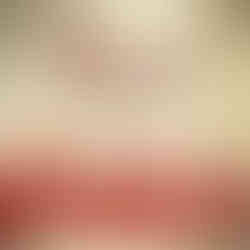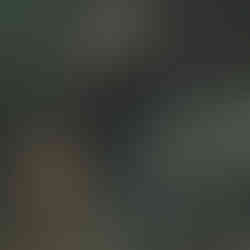Natuurlijk wil iedereen weten hoe een Mikael Åkerfeldt solo album zou klinken zou het er ooit van komen. Wel, luister even naar deze Martin Rubashov en je voelt gewoon de mogelijke richting en sfeer. Zowel de acoustische aanpak, het stemtimbre, de folk invloeden als vanzelfsprekend de Zweedse taal ademen diezelfde zuurstof die ook de 'meester' zelf als bron zou gebruiken. Maar nu eerst: Martin Rubashov!
Video illustraties: Anton Josefsson.
Even voorstellen
With the characteristic combination of folk tones, acoustic guitars and a singing voice that is both rough and fragile at the same time, Martin Rubashov paints cinematic sceneries for the listener of being a seeking wanderer in the deep forest of the Swedish forests of Hälsingland. In the distance, the sun falls through the pines that create a warm contrast against the dark trees. The ground is covered with cold muddy moss and the dew lies like unshaded smoke over lingonberry and uprooted trees. You hear the sound of something moving in the dark. Eyes are watching you vigilantly from the crowns of the trees and you can sense something or someone insidious through the light morning fog. The environment is timeless, as a world of your own imagination in a dull future dystopia, with a shimmering streak of hope twined as a golden thread in the dark web.
Big trees, massive mountains and deep waters are some of the factors that frequently lure Martin Rubashov into the forest. The tangible awareness of being a small part of something bigger helps him to stay close to the feeling of what is truly and authentic.
Last fall, Martin Rubashov released his latest album 'The Nature Script', where he in collaboration with the environmental organization 'Smart Klimat' planted trees in Zambia to help the critical environmental situation, give a new home to endangered animals and help prevent poverty. Now, Martin Rubashov releases his own version of the old folk song 'Hårgadansen', a tale about when the devil came to the Swedish province of Hälsingland disguised as a musician who lured the villages to their death through his music, dancing until nothing but their bones remained. Some say that they can still see the marks from the dance on top of the mountain Hårga and those who are brave enough to set foot on the mountain in the pale light of the full moon can hear the tones of the devilish music once played.
Martin talks about recording Hårga: "Most of the song is recorded in the forest nearby the mountain of Hårga, something I've been wanting to do for a long time. I set up microphones so nature, with all its birds, the wind and ambiance, could have their voices heard in symbioses with my acoustic guitar. At the end of Hårga you can hear my four year old daughter taking over singing the chorus."
Hårga is the first taste of Martin Rubashov's upcoming album that is planned to be released next fall. The album will be acoustic and dream-like with the sounds of nature weaved into the soundscape. Martin describes the music as "the feeling of landing on a cold but inspiring and encouraging world, inside a warm pine forest." He continues "I'll use my twelve stringed guitar a lot more and I have written the majority of the material, and even though not everything will be in Swedish I'll probably do another one. I still haven't left the forest and I'll stay here when it comes to my music. I want to widen my view more. Wander deeper into the forest. Build sounds to connect the songs and record more of nature to tie into the lyrics that take place here.




